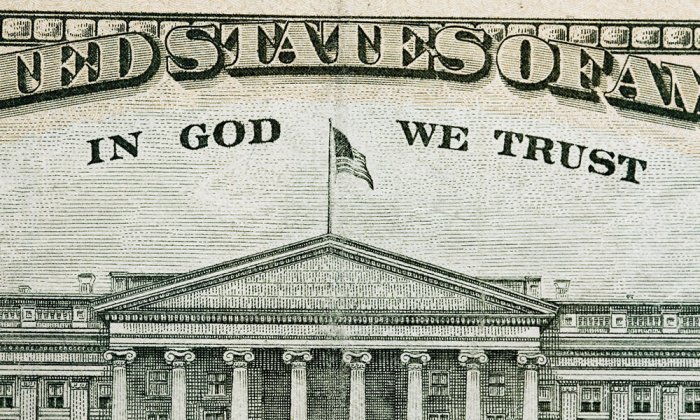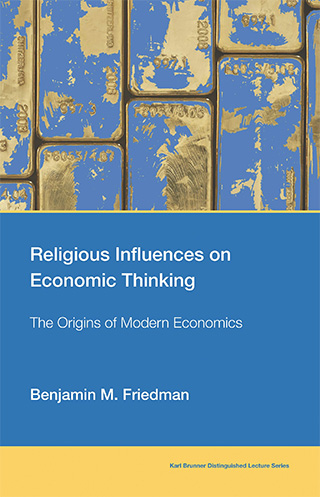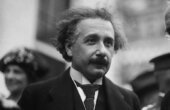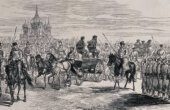The Deep Religious Roots of American Economics

The great historian of science Thomas Kuhn explained that it is when a science is in its infancy that its fundamental concepts and theoretical propositions are most subject to external influence. But he also argued that intellectual disciplines often respond to outside thinking well beyond their youth. Then, however, the influence is more a matter of method and application. Economics, too, has followed this pattern.

Long after the fundamental influence of religious thinking at the inception of modern economics, even as the economy of the Western world evolved and the questions economists asked changed along with it, the field continued to be shaped in part by religious thinking. By then, however, much of the fundamental conceptual underpinning of the discipline was set. What religious thinking helped to shape, as the discipline matured, was more the empirical implementation of economic thought and its application to issues of economic policy. Nowhere has this influence been more evident than in America.
The chief economic issue under debate in the United States in the first half of the 19th century (leaving aside the economic aspects of slavery) was international trade. Not surprisingly, the subject became a principal focus of attention among the country’s new wave of Adam Smith-influenced economists. In contrast to Smith, in the early United States, many of the leading teachers of and writers about economics were religiously committed men. Where Smith invoked the invisible hand of the market forces he laid out in such detail, they saw the hand of God at work — much as Newton had argued was the case in the physical world. John McVickar, who taught the first college course in economics given in America (at Columbia), was an Episcopal priest. Francis Wayland, author of the best-selling American textbook on economics before the Civil War, was a Baptist minister. Francis Bowen, author of the major competing textbook, was not ordained but was nonetheless closely associated with the Unitarian movement.
“To forbid trade among nations is, therefore, a very unwise thing; but it is also a very wicked thing, for it is contrary to the will of God.”
All three of these economists, whether for free trade or against, framed their arguments in explicitly religious terms. McVickar, a strong proponent of free trade, followed earlier thinkers like Montesquieu and Thomas Paine in hailing international economic relations as a route to peace among nations. Arguing that beneficial consequences of human actions occur because a benevolent God makes them so, he wrote in the 1830s, “I cannot but reverence the claims of free commerce as something holy, something allied to the policy of a higher power than man.” Even more strongly, in another work McVicar stated, “To forbid trade among nations is, therefore, a very unwise thing; but it is also a very wicked thing, for it is contrary to the will of God.”
Wayland shared the same view and was more explicit about how the process worked: “Every man needs, for the gratification of his innocent desires, nay, for his conveniences and even necessaries, the productions of every part of the globe . . . it is evidently the will of our Creator, that but few of these objects, every one of which is necessary to the happiness of every individual, should be produced except in particular districts.” Trade among nations was therefore a physical necessity. The reason, he concluded — the “final cause of all this” — was also evident: “God intended that men should live together in friendship and harmony.”
On the other side of the debate, Francis Bowen, a protectionist (his reason for writing a textbook to compete with Wayland’s was to advocate tariffs), made an analogous claim in support of protection. “By treating the human race as one great family,” he warned, “we are not following, but departing from, the apparent design of Providence.” In contrast to Wayland’s vision of the world’s oceans as a device for knitting countries together through commerce, Bowen concluded that “the Deity seems to have stamped on the features of nature and of humanity, in unmistakable characters, that nations shall remain separate and distinct, each pursuing . . . its own separate interests.” Unrestricted trade, he thought, upset the natural state of affairs that God had intended for the world. Whether advocating free trade or protection, American economists in the pre–Civil War period anchored their views in religious argument.
By the latter half of the 19th century, the Industrial Revolution was in full swing. Steam power, which in Adam Smith’s day was just beginning to drive factory production, now powered not only factories on a far larger scale but railroads too. The movement of populations into urban centers had not just advanced but accelerated. Nowhere were these changes more evident than in the United States. The period following America’s Civil War was a particular era of economic change, marked by both rapid population growth and the fastest increase in per capita production and living standards in the country’s experience recorded before or since. Despite all this prosperity, however, many Americans had reservations about what the new economic era had brought. Most visibly, the combination of mass production and urbanization had created a new mass urban workforce. And along with it came widespread and persistent urban poverty.
Significantly for the evolution of economics, the social sciences in the United States were at this same time beginning to emulate the professionalization that these disciplines had already achieved a generation or more before in Europe, especially in Germany. In 1865 scholars from a variety of subject areas had formed the American Social Science Association. Two decades later, what had been closely allied lines of inquiry within this broad umbrella began to go their separate ways. In 1885, following the lead of the historians the year before, a group met to create the American Economic Association (AEA). In a reflection of the same movement toward intellectual professionalization, American universities were then beginning to organize their faculties into divisions and departments along subject-based lines. By 1890 the University of Chicago, Columbia University, Harvard University, Johns Hopkins University, the University of Michigan, the University of Pennsylvania, Princeton University, the University of Wisconsin, and Yale University all had recognizable departments of economics. A further expression of professionalization was the establishment of dedicated scholarly journals as outlets for new thinking. In 1886 economists at Harvard began publishing the Quarterly Journal of Economics, and those at Chicago followed with the Journal of Political Economy (still using the older name for the discipline) in 1892. Early in the new century the AEA launched its own journal, the American Economic Review.
This new generation of American economists were strongly non-predestinarian in their personal religious beliefs, and it showed in the direction that the discipline took under their leadership. John Bates Clark, the foremost theorist among them, expressed concern that the image of man on which economists were now basing their analysis “may or may not resemble the man whom God has created”; in his view, “the latter only is the true subject of political economy.” Anticipating criticisms of economic thinking that became far more prevalent a century later (and that persist today), he complained, “The assumed man is too mechanical and too selfish to correspond with the reality.” Men and women, as God created them, were human in all respects. “What is true of a laboring machine requiring only to be housed and clothed, and to be fed . . . will certainly not be altogether true of a laboring man in modern society.”
Many American economists of this period were also influenced by the Social Gospel movement then gaining momentum among America’s Protestant churches in reaction to the persistence of poverty and widening economic inequality despite ongoing industrial expansion. Mirroring the central theological thrust of the Social Gospel, Clark argued that the conditions of society shape individuals’ attitudes and behavior. Influences stemming from society as a whole, he explained, were capable of transforming individual nature. An individual man or woman became “higher and better” by being a part of a well-designed society. Best of all, under the right conditions men’s “higher wants” — including the ingredients of “intellectual, aesthetic and moral growth” — could expand without bound, resulting in “a limitless outlet for productive energy.” The thought had significant implications for economic theory: There was no reason to anticipate the kind of stagnant “stationary state” about which John Stuart Mill and others had theorized earlier in the century. In Clark’s evaluation, the extent to which this limitless human energy is utilized was “the gauge of genuine economic progress.” And there were practical implications too: economic policy — government action — could make an important difference. “We may build a new earth out of the difficult material we have to work with,” he wrote (invoking language from the biblical Book of Revelation), “and cause justice and kindness to rule in the very place where strife now holds sway.” With the right guidance, “a New Jerusalem may actually rise out of the fierce contentions of the modern market. The wrath of men may praise God and his Kingdom may come, not in spite of, but by means of the contests of the economic sphere.”
Richard T. Ely, the leading applied policy economist of the era, and more than anyone else the person responsible for establishing the American Economic Association, likewise resisted any kind of determinism, emphasizing instead the capacity of human agency to shape not only individuals’ spiritual destiny but also conditions in the material world. He too saw the economic condition of society as the outcome of human decisions and human actions. The key implication was that people bear a moral responsibility for how they and their fellow citizens live.
Drawing on his graduate training in the thinking of the German historical school, Ely suggested for this purpose a new methodology based on the use of explicit cross-country comparison as a way to gain a deeper understanding of whatever behavior was under study, as well as to introduce the possibility of deliberate ameliorative intervention. “We can observe certain regularities and tendencies in all social phenomena,” he wrote. What, then, should economists conclude about these regularities? When people observed that many of the social phenomena that mattered appeared to recur regularly, year after year, “a feeling akin to fatalism arose, and some statisticians were inclined to look upon these regularities as . . . beyond the control of man.” But such an attitude contradicted Ely’s non-predestinarian sense of the possibilities for human agency. A deeper inquiry, he pointed out, revealed differences in these regularities between one country and another. And still further analysis showed that these differences “could be brought about by the action of man.” There were few or no universal economic regularities, valid at all times and in all places. Economic behavior, like every other aspect of human life, was conditional on the prevailing social arrangements.
Religiously grounded differences in people’s worldview go a long way toward explaining the puzzle of why so many Americans vote in ways apparently contrary to their economic self-interest.
What social arrangements to pursue, and therefore which economic policies to implement, are questions that have dominated the discipline ever since. The great majority of articles published in the field’s scholarly journals today motivate whatever question is under study by pointing to its bearing on economic policy, or conclude by drawing policy implications from the analysis presented, or both. This pattern is even more prevalent, with the policy content of the analysis bulking still larger, in books about economics aimed at a broad public audience. The educated public today expects discussion of economics to be about public policy. Thanks in no small part to Clark and Ely, it largely is.
Debates not only over specific economic policies but also about what role government should play more generally, in the economy as well as in the society broadly, have continued to frame the field’s agenda. Here too, the influence of religious thinking has been at work throughout, especially in America. Early in the 20th century, the legacy of the Social Gospel movement stood behind Franklin Roosevelt’s New Deal. More conservative groups within American Protestantism, grounded in different theological beliefs, led the opposition to it. At midcentury, under the impetus of the existential threat posed by world Communism, the coming together of religious conservatism, centered in America’s evangelical churches, and economic conservatism, which drew new energy from the infusion of the libertarian thinking of the Austrian Friedrich von Hayek, shaped much of the economic debate in the public sphere. In time this union of conservatisms proved highly influential within the academic economic profession as well.
Today, the influence of religious thinking on economic thinking is most readily visible in America’s public conversation about economics and the country’s debate over economic policy. Members of evangelical Protestant denominations in particular hold sharply different views on many questions of economic policy than Americans on average, including members of the country’s mainline Protestant denominations. These differences are even greater among evangelical denominations considered “traditionalist.” Similar differences appear in responses to surveys focusing not on economic policy but on underlying presumptions about how the economy works: whether individual economic success is mostly a matter of luck or hard work, or whether the poor are trapped in their poverty.
Such religiously grounded differences in people’s worldview also go a long way toward explaining the puzzle, much discussed in the empirical political science literature, of why so many Americans vote in ways apparently contrary to their economic self-interest. Why, for example, do so many low-income voters oppose taxes that they would never have to pay and benefit programs on which they rely? Why do so many people living in areas blighted by industrial waste and pollution oppose regulation or other policies to prevent such damage, or efforts to clean up what has occurred in the past? The strong correlation between people’s views on such matters and either their religious affiliations or their individual religious beliefs suggests that any effort to understand these observed patterns without taking account of the role of religious ideas in shaping people’s thinking on matters of economics is, at best, seriously incomplete.
Benjamin M. Friedman is William Joseph Maier Professor of Political Economy at Harvard University. He is the author of “Religion and the Rise of Capitalism” (Knopf), “The Moral Consequences of Economic Growth” (Vintage), and “Religious Influences on Economic Thinking,” from which this article is excerpted. He’s a member of the American Academy of Arts and Sciences and the Council on Foreign Relations.



